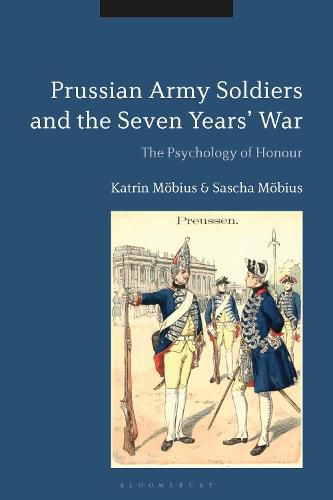Readings Newsletter
Become a Readings Member to make your shopping experience even easier.
Sign in or sign up for free!
You’re not far away from qualifying for FREE standard shipping within Australia
You’ve qualified for FREE standard shipping within Australia
The cart is loading…






The army of Frederick the Great of Prussia is generally known as an efficient fighting machine based on brutal and strict drill procedures that led to broken but fearless soldiers as well as glorious battle victories. In analysing the mentalities of the men who established Prussia’s great power status, Prussian Army Soldiers and the Seven Years’ War fundamentally challenges this interpretation.
Drawing on a vast array of primary sources (including the writing of regimental chaplain Kuster, who could probably be called the first modern military psychologist) and presenting the first English translation of 12 letters of common Prussian soldiers from the Seven Years’ War, this book shows that the soldiers were feeling individuals. They were loving husbands, vulnerable little brothers, deeply religious preachers, and sometimes even bold adventurers. All these individuals, however, were united by one idea which made them fight efficiently: honour.
In Prussian Army Soldiers and the Seven Years’ War, the different elements of the Prussian soldiers’ concept of such honour are expertly analysed. The result is a nuanced, sophisticated, and much-needed psychological history of Frederick the Great’s army.
$9.00 standard shipping within Australia
FREE standard shipping within Australia for orders over $100.00
Express & International shipping calculated at checkout
The army of Frederick the Great of Prussia is generally known as an efficient fighting machine based on brutal and strict drill procedures that led to broken but fearless soldiers as well as glorious battle victories. In analysing the mentalities of the men who established Prussia’s great power status, Prussian Army Soldiers and the Seven Years’ War fundamentally challenges this interpretation.
Drawing on a vast array of primary sources (including the writing of regimental chaplain Kuster, who could probably be called the first modern military psychologist) and presenting the first English translation of 12 letters of common Prussian soldiers from the Seven Years’ War, this book shows that the soldiers were feeling individuals. They were loving husbands, vulnerable little brothers, deeply religious preachers, and sometimes even bold adventurers. All these individuals, however, were united by one idea which made them fight efficiently: honour.
In Prussian Army Soldiers and the Seven Years’ War, the different elements of the Prussian soldiers’ concept of such honour are expertly analysed. The result is a nuanced, sophisticated, and much-needed psychological history of Frederick the Great’s army.